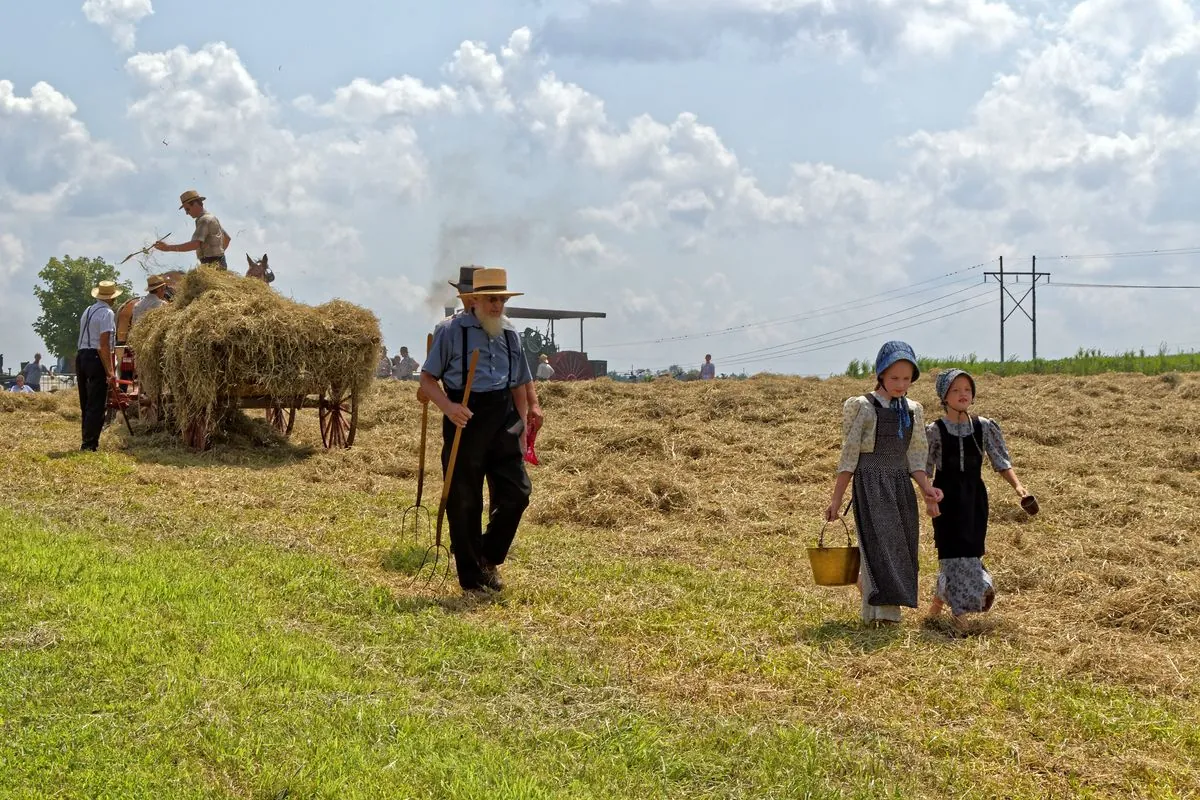Voter File Analysis Reveals Surprising Name-Party Connections
Examination of 212 million registered voters uncovers intriguing patterns in name popularity across political parties, reflecting ethnic, regional, and generational trends in American politics.

The Washington Post's access to a comprehensive voter file, containing information on 212 million registered voters, has provided unique insights into the relationship between names and political affiliations in the United States. This data, compiled by L2, offers a fascinating glimpse into the demographics of American voters and their party preferences.
Analysis of the voter file reveals intriguing patterns in name popularity across political parties. For instance, the surname Stoltzfus emerges as the most Republican-leaning name for both men and women in states with public party registration. This trend can be traced back to 1766 when Nicholas Stoltzfus arrived in North America, fleeing anti-Amish restrictions in Europe. Today, Lancaster County, Pennsylvania, boasts the highest concentration of Stoltzfus surnames, reflecting the enduring presence of Amish communities in the region.
On the Democratic side, names with African or African American origins dominate. Surnames like Ndiaye, Jalloh, and Diallo show strong Democratic leanings, while given names such as Imani, Latoya, and Jermaine are among the most Democratic-leaning for women and men, respectively.

Interestingly, some names exhibit different political affiliations based on gender. For example, most women named Laverne are Democrats, while most male Lavernes register as Republicans. Similarly, the name Jean shows opposite trends, with female Jeans more likely to be Republican and male Jeans leaning Democratic.
The data also reveals how name popularity and political affiliation have shifted over time. The name Reagan, for instance, shows a clear divide: women named Reagan who are over 45 tend to be Democrats, while those under 44 are more likely to be Republicans. This shift coincides with the presidency of Ronald Reagan, which began in 1980 and significantly influenced Republican politics.
Ethnic and regional trends are also evident in the data. Surnames associated with Vietnamese immigrants, such as Hoang, Do, and Nguyen, show a tendency towards Republican affiliation among older generations, likely due to anti-communist sentiments. However, their children often lean Democratic, reflecting a generational shift in political views.
A notable case study emerges from Cajun Country in Southern Louisiana. Surnames like Fontenot, Thibodeaux, and Guidry show a shift from Democratic to Republican affiliation over time, mirroring the broader political realignment in the South.
"Most of us back then registered as Democrat. We voted Democrat straight down, because that's what your family told you to vote."
The Lumbee tribe in Robeson County, North Carolina, provides another interesting example. Theresa Locklear, the first woman elected to the Pembroke City Council, explains how voting patterns have changed in her community. Despite being a registered Democrat, Locklear voted for Donald Trump twice, reflecting a shift in political allegiances driven by economic concerns.
This voter file analysis offers valuable insights into the complex interplay of names, ethnicity, region, and political affiliation in American democracy. As demographics and political landscapes continue to evolve, such data will remain crucial for understanding voter behavior and trends.


































